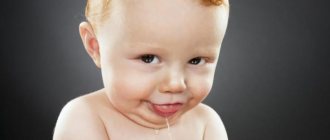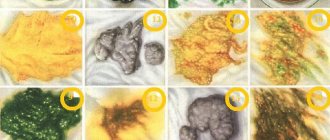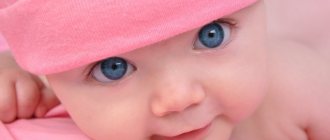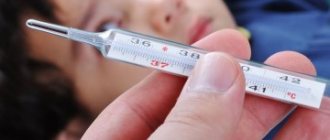- Why is there so much saliva?
- Saliva and its functions
- How to help your baby
- Baby care
- If the abundance of saliva scares you
Just yesterday your little one was a cute baby, but today he suddenly started blowing bubbles.
What happened, why is your mouth watering so much that you don’t have time to wipe it off? What should I do: call a doctor or is it not dangerous and will they go away on their own? With the birth of a child, a mother has new questions every day. Before, there were no tears when I cried. Then you need to wipe your mouth, clean your ears, but it’s scary to get hurt. Now suddenly my mouth started watering, and for some reason so much. There are many questions, let's consult a pediatrician.
Secretion of saliva and stages of its formation
Every day our body produces from 1 to 2 liters of saliva, which we swallow without noticing. Another thing is with babies: they have an involuntary flow of salivary fluid, and children cannot yet control this condition. Drooling usually continues until the child is 18 to 24 months old. The process is very common during the teething period, so mothers and fathers should be prepared for the fact that the infant will drool everywhere: on clothes, things, toys.
When a small child drools like a river, this is normal and is considered a sign of the baby’s physical development:
- At 1-3 months this happens often, especially when the baby is in a supported sitting or horizontal position.
- At 6 months, parents notice that drooling increases (due to the appearance of the first teeth) when the son or daughter reaches for toys or mutters.
- At 9 months the baby is already crawling, saliva production decreases, but teething can still stimulate drooling.
- By 15 months, the child will already be walking and running, and saliva will be practically invisible. However, fine motor activities that require concentration can lead to involuntary flow of saliva.
- At 18 months, the baby no longer drools, but this happens occasionally when dressing and playing.
- At 24 months, drooling is minimal.
What role does saliva play for a child’s body?
A baby's drooling and bubbles indicate that your baby is going through a new phase of growth. The saliva itself contains useful enzymes that help digest semi-solid and solid foods, which is especially important for babies 4-6 months old. Saliva neutralizes stomach acid and promotes the formation of the inner mucous membrane. It coats food and makes swallowing easier.
Baby care
Excessive salivation requires increased care from parents. Mothers stock up on handkerchiefs or soft napkins to wipe the newborn's mouth and chin.
Even with constant wetting of the chin, dripping drool causes redness, peeling, and a rash on the skin around the mouth and on the chin. Knowledgeable mothers advise using baby cream and lubricating irritated areas several times a day until the skin is restored.
Your doctor will tell you which creams and ointments to relieve irritation on your child’s skin. You need to lubricate delicate skin with the prescribed products very carefully, in a thin layer, so as not to cause even more irritation.
Causes of excess salivation in children
Parents, of course, are concerned when their child is drooling like a river. Why is this happening? Let's list the main reasons:
- Teething. Although the baby's teeth are not yet visible until 6-8 months, the process itself begins very early. This is why, at about 3 months of age, your baby begins to produce excess saliva: the teeth begin to push through the gums.
- Mouth open. A baby may keep his mouth open for quite a long time due to a clogged nose or out of habit. Due to this, he may not swallow saliva, which leads to increased drooling.
- Concentration of attention. The little explorer does not swallow saliva because he is concentrated on some task or interesting subject. This is where the oral fluid flows out.
- Nutrition. Unusually sour food often provokes drooling in the baby.
- Neurological disorders. Facial neuritis (Bell's palsy), cerebral palsy, autism, Down syndrome are diseases that also manifest themselves as excessive salivation in children.
- Side effects of medications. Some medications cause increased muscle tone in the lips, which leads to excess saliva.
- Exposure to toxic substances, including mercury vapor, insect bites.
Questions and answers about a one-month-old baby
For one-month-old babies, waking up frequently is normal because they tend to have shallow sleep. Deep sleep will come at a later age, but for now a child’s sleep can be very sensitive. After such periodic awakening, different children behave differently: one baby may immediately fall asleep, while another cannot do without help and begins to cry. If poor sleep occurs frequently in your baby, it may be associated with a need to feed or tummy pain.
Most children at the age of one month physiologically need night feeding - the child grows quickly and feels a lack of milk. The lactation crisis usually occurs at 3-4 weeks of life, so during this period you need to put the baby to the breast more often.
Abdominal pain very often occurs in one-month-old babies due to short-term spasms in the intestines (they are called intestinal colic). Colic occurs due to the baby's digestive characteristics and this is also normal. To ease the pain, you can give your baby a gentle tummy massage: stroke it clockwise with a warm hand. You can also warm a diaper on a radiator (or with an iron) and put it on the baby’s tummy, and then press it close to you - the warmth relieves cramps and after a short time the child will calmly fall asleep.
Other causes of sleep disturbance are more difficult to identify, but if you observe your child enough, you can understand: when he is overexcited before bed, and when he is afraid of something. In order for your baby to sleep well and soundly at night, you need to adhere to certain rules.
Source
Does the child need to be treated?
Drooling does not require any treatment as it is a normal part of growing up. Medical care is needed for those children who are no longer babies: they are over 4 years old, and drool is still flowing like a river, and it is not possible to keep clothes dry without a bib.
At your appointment, the doctor will definitely check:
- Does the child close his lips and move his tongue correctly?
- Does he swallow normally, is there any hoarseness and pathologies in the esophagus (tumors, swollen tonsils).
- Is breathing through the nose free?
- Has the child developed a natural swallowing reflex?
- Are the jaws and their position functioning correctly?
- Having allergies.
Due to the constant flow of saliva from the mouth, irritation and rash may appear on the child’s lower lip, chin, cheeks, and neck. Try to immediately blot these sensitive areas of the skin, dry them with a clean soft towel, and apply cream (based on lanolin, coconut oil) or Vaseline, aloe vera gel. Be sure to use a bib to prevent saliva from getting onto your baby's neck and chest.
Why does a baby drool?
Increased drooling in most cases is not dangerous and goes away over time. There may be several reasons for excessive salivation.
The salivary glands and their proper functioning are just developing in the baby. Therefore, sometimes it appears in large quantities. The swallowing reflex has not yet been formed, and the baby cannot cope with the abundance of saliva.
Saliva prepares the gums for teething. Teeth cause pain to the gums, and saliva softens the irritated gums. In addition, it has an anti-inflammatory effect. This mechanism is intended by nature. Increased salivation begins at 2–3 months and lasts up to one and a half years.
Saliva contains a secretion that protects the child from bacteria.
When stomatitis occurs, an increased amount of saliva is produced to combat the causative agent of the disease. This is how the body protects itself. When a child has a runny nose, his nose becomes clogged and he cannot breathe. Air enters through the mouth. This also causes increased drooling. Some medications cause this problem. This adverse reaction is observed in drugs that contain lithium. If your child is very bothered by increased salivation, ask your pediatrician to change the drug.
If the child is 6 months old, then hypersalivation - increased salivation - may be a sign of a serious illness. For example, deviations in the formation of the central nervous system, problems with blood vessels, ulcers, etc. To be calm and exclude the presence of serious diseases, consult a pediatrician.
Drooling in a baby: how to help
If the pediatrician has diagnosed the absence of diseases, it is useless to fight increased salivation. However, make this period comfortable for yourself and your baby.
- Use bibs that have a waterproof lining.
- Wipe off saliva with a dry cloth.
- Wash your baby's face regularly with warm water without soap.
- Apply baby cream to your chin.
- Change your baby into dry clothes.
- Give your baby a pacifier to help him swallow saliva more easily.
This will help avoid facial irritation and prickly heat.
Typically, increased salivation is a temporary phenomenon and safe for the child. After a few months, this problem will disappear on its own.
Why is saliva needed?
It turns out that saliva is very important for infants:
- It contains digestive enzymes that promote better digestion and absorption of food. In addition, it is able to soften food, thereby helping the still toothless baby;
- Saliva has protective properties: it moisturizes the oral cavity, which protects it from drying out, and, thanks to the substances it contains, such as lactoferrin, lysocin, etc., it has a bactericidal effect. This is very important for such little ones, because you have noticed that they pull into their mouths everything that comes to hand;
- Saliva acts as a kind of barrier, helping to neutralize various acidic and alkaline compounds. And thanks to the content of calcium, fluorine and phosphorus, it is able to saturate the enamel of growing teeth with these elements;
- Viscous saliva helps babies in the first months of life suck at the breast;
- During teething, the gums can become very inflamed, and saliva can relieve the inflammatory process. Read the current article about how teething occurs in children>>>.
Cause of drooling before teething
Let's try to figure out what is actually associated with excessive drooling in the first year of a child's life. Salivary glands are formed by two to three months of age, it is at this time that parents notice that their baby is actively blowing bubbles. As a rule, the baby does not know how to swallow drool, so the mother thinks that there is too much of it. While there are no teeth yet, salivary fluid provides comfortable swallowing during breastfeeding and, after the introduction of complementary foods, promotes the digestion of food in the stomach due to special enzymes that convert starch into sugar.
Diagnostic methods
To determine the cause of hypersalivation, the doctor draws up an anamnesis based on the complaints of the baby and parents. The doctor is interested in the frequency of salivation and the color of the secreted fluid. The pediatrician also asks about the presence of chronic pathologies.
After this, the specialist examines the baby, paying special attention to the condition of the skin of the chin. Then it is determined how much saliva was produced in 10-12 minutes.
After this, the doctor makes a preliminary diagnosis and sends for examination.
- blood tests;
- Ultrasound;
- bacterial culture of a smear from the oral cavity.
Sometimes additional consultation with more specialized specialists is required: an allergist, gastroenterologist, infectious disease specialist, psychotherapist, dentist, neurologist.
How to get rid of this?
First of all, you need to determine the causes of excessive salivation. If it is pathological, then you cannot do without the help of a doctor and drug treatment.
If increased salivation is a physiological process, then parents need to alleviate the baby’s condition and support him during the period of hypersalivation:
- The restoration of the baby’s health depends on quick and adequate treatment.
When pathological changes occur in the oral mucosa in a child, it is necessary to consult a specialist. The restoration of the baby’s health depends on quick and adequate treatment.
- To get rid of hypersalivation , the cause of which is stomatitis or gingivitis, dentists prescribe medications that destroy infectious agents and promote rapid regeneration.
- If there is a helminthic infestation or a somatic disease , the symptom of which is increased secretion of the salivary glands, the child should be taken to see a doctor, examined completely and treated with medications that normalize salivation.
- Natural remedies will help improve the condition of the little patient. For stomatitis, it is recommended to rinse the mouth with table salt solution or herbal infusions, and for gingivitis - with sea buckthorn oil.
- You can reduce the secretion of saliva by strengthening the immune forces of the child’s body. For this purpose, they protect children from emotional stress, often take them for walks on the street, give them healthy food enriched with vitamins, and develop them physically by participating in various sports sections.
- Always use a bib. Treat the skin of the face with nourishing creams, and if necessary, dry the skin on the chin with the addition of zinc.
- Using pacifiers will help the baby reflexively swallow saliva when it is released in abundance.
Important! Self-medication of hypersalivation in children is strictly prohibited. Only the help of a qualified specialist will help to correctly establish the etiology of the pathology, on the basis of which appropriate treatment is prescribed.
Cause: oral diseases (stomatitis, thrush)
If the baby constantly sucks his fists, and increased salivation is accompanied by an increase in body temperature, a white coating is clearly visible on the tongue, gums and mucous membranes, you should immediately consult a doctor. These symptoms indicate damage to the oral cavity by a fungus of the genus Candida. Factors contributing to the appearance of thrush in children:
- Sugar consumption. The baby can receive it both from baby food (manufacturers often use artificial sweeteners to improve taste) and from breast milk (if the mother’s diet contains refined foods, sweets and preservatives in large quantities).
- Decreased immunity. Thrush in infants often accompanies infectious diseases.
- Poor hygiene. Pathogenic fungi enter the body of a two to three month old baby with dirty nipples and toys, as well as if he puts dirty fingers or fists in his mouth.
- Taking antibiotics. They destroy bacteria that prevent the growth and reproduction of pathogens.
Often children at 2-4 months drool continuously due to stomatitis. With this pathology, blisters and ulcers appear on the oral mucosa. Babies may refuse to eat due to severe pain.
Danger Signals
All of the above reasons are physiological and quite normal for children in the first years of life. However, sometimes, increased salivation may indicate certain diseases:
- Viral or bacterial infections. In this case, you will notice that it is difficult for the child to breathe through his nose;
- Congenital disorder of swallowing function. This condition leads to a large accumulation of saliva in the oral cavity, which begins to flow out over time;
- Pseudobulbar syndrome is a disorder of the development of the muscles of the pharynx or tongue;
- Allergic rhinitis. Most often it occurs during flowering plants, but there may be an allergic reaction to pet hair or dust;
- Neurological diseases (cerebral palsy, pathologies in brain development, etc.);
- The presence of helminthic infestations in the body. In this case, drool will be actively released at night;
- Diseases of the digestive system.
Such pathologies are quite rare. However, mothers are still advised to consult with a pediatrician and neurologist who can identify them. It is especially important to do this if the child is too irritable, has a fever or a stuffy nose, there are white spots on the mucous membranes of the mouth, or the baby has seizures.
Hypersalivation, its types and methods of treatment
Some people experience increased salivation. In medicine, this action is called hypersalivation.
Hypersalivation – increased secretion of the salivary glands. If it manifests itself in an adult, hypersalivation is considered a disease. Often, the cause of hypersalivation may not be an increase in the secretion of the salivary glands, but a violation of the swallowing reflex.
In a healthy person, the normal level of salivation is 2 mg in any 10 minutes. Although if a person is in a painful state or his condition changes, then salivation can either increase or decrease.
Why does a child blow bubbles?
Many mothers worry when their two-month-old baby begins to drool with bubbles and constant moisture forms around the baby's mouth. In fact, drool running down to the chin is a distinctive feature of almost all babies. In babies, the salivary glands begin to work, and a full swallowing reflex is formed only by 5 months. In a certain sense, excessive drooling is a harbinger of the imminent eruption of the first teeth. Thus, increased salivation for children under one year of age is a physiological norm.
At older ages, drooling is also not considered a serious disorder. Unless they cross a certain “line”, which indicates problems with the child’s health. Excessive salivation may be a sign of a neurological disorder, bacterial or viral infection, birth defect, facial paralysis, or oral disease.
Allergic rhinitis is also one of the causes of increased salivation. It affects 10-20% of all children. Allergic rhinitis can be year-round (dust mites) or seasonal (grass, pollen). In addition to excessive drooling, symptoms of rhinitis include watery eyes, sneezing, swelling, and itching in the eyes, nose, and throat.
Now it’s clear why children blow bubbles, but why do they do it? Nothing is clear, but I probably will never understand!
For me, it’s better to let the baby drool and let them have huge bubbles, as long as he is healthy and happy. The article says that this phenomenon will occur while the baby is cutting teeth, and if this does not pass to the older one age, then it will be necessary to sound the alarm and see what is causing the increased salivation.
The child begins to develop salivary glands. A lot of saliva appears, the baby does not know how to control saliva
Source
When should you worry?
The causes of hypersalivation in infants may not always be so harmless. If this phenomenon is observed in children older than six months, it may be a sign of very serious diseases that require examination and observation by a specialist. Here are just a few of them:
To exclude these severe pathologies, it is necessary to conduct a full examination of the child and obtain consultations from specialists, as well as undergo the necessary tests and examinations (if indicated).
Neurological disorders, for example, can also cause excessive drooling, and babies commonly experience this during teething. Talk to your child's doctor if you feel your child is drooling excessively, as some conditions may require serious treatment.
What is the normal progression among children?
Recognizing the typical drool pattern will be easier if you have an understanding of the normal stages of drool development among infants. This is because the chances of drooling are much less when the baby is in a face-down position. But the baby will drool if he is in a lying or supported sitting position. Once your baby is six months old, drooling due to positioning will almost stop. At this stage, he drools when he talks or concentrates, doing something with his hand, holding or reaching for something. When a baby is around one year old, drooling will decrease more, although he or she will drool during teething or due to eating certain foods. When a baby crosses the one-and-a-half-year mark, he may occasionally only drool during the teething process or during block-chasing activities or activities using small finger muscles. When the child is about two years old, noticeable salivation will almost stop.
- Typically, drooling begins when the baby is about three months old.
- This is because he lacks swallowing and muscle control of the mouth.
Yes, salivation plays a role in a child's development.
Why is there so much saliva?
Your newborn is growing, becoming large, and reaching two to three months of age. At this stage of development, the salivary glands form and begin to work. Therefore, excessive drooling is normal.
During this same period, the baby becomes more active. The child explores and tastes everything that surrounds him. Therefore, the body produces a protective antibacterial environment - saliva, which washes away dirt that gets into the small mouth.
The newborn has already drooled, but the baby still does not know how to swallow it, so streams flow down his chin. Parents are frightened by such profuse drooling. If the saliva is clear, not foamy, not thick, not stringy, experienced mothers do not worry. Mothers know that this is a normal state for a baby at this age.
Increased drooling after 2 years
If excessive drooling in a child under 2 years of age is considered normal, then older children require the help of a specialist who will tell you whether this phenomenon is temporary or requires drug treatment. Usually in such cases, children are prescribed drugs with anticholinergic effects (“Atropine”, “Spazmolitin”, etc.).
And don’t be scared when you see your baby drooling profusely. Usually this is simply a physiological feature that absolutely all children encounter at a certain age. Very little time will pass, the baby will start teething, he will learn to swallow saliva and the situation will return to normal. Mom can only wait out this moment, helping her baby cope with profuse drooling.
Why does a 2 month old baby drool? Is this normal?
Many young parents are frightened by the fact that their two-month-old child begins to blow bubbles and drool; they look for the cause in diseases and disorders of the body, although in reality everything is much simpler and there is absolutely nothing to worry about.
The swallowing reflex is fully formed only by 4-5 months of life, but for now the little man copes with the situation in his own way, and this should be rejoiced as a new stage in his development. True, by the time the baby learns to swallow saliva, his teeth will begin to cut, so it’s better not to hide the bib just yet - he will need it for a long time. It should be borne in mind that teeth begin to form much earlier than they erupt through the gums, so a 2-month-old child is also drooling for this reason.
When a curious baby begins to put everything in his mouth, and 2 months is the appropriate age for this, salivation is further provoked. Therefore, there is no need to worry, it is better to take the necessary measures - get bibs and wipe your beloved child’s chin more often so that constant phlegm does not cause irritation.
If you think your child is salivating more than normal, you can check to see if the abnormality is caused by a medical condition. Most often, young children suffer from allergic rhinitis, which can be caused by
Source











